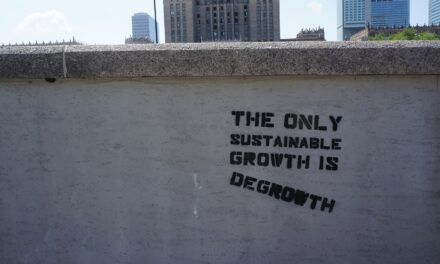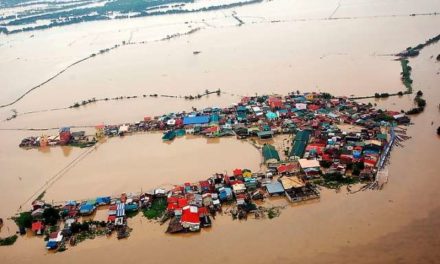The G 8’s communiqué regarding their action on climate is actually inaction being masked as movement. It is a great fraud being perpetrated on the global community that would significantly reduce its capacity to contain climate change. We fully agree with the statement of the Government of South Africa that “[W]hile the Statement may appear as a movement forward, we are concerned that it may, in effect, be a regression from what is required to make a meaningful contribution to meeting the challenges of climate change.”
Retreat from Bali
The announcement of the agreement among the G8 to reduce greenhouse gas emissions globally by 50 per cent by 2050 is actually a step back from the minimum action that was demanded by the global community during the United Nations Summit on Climate Change in Bali last December. In Bali, opposition from the US, Japan, and Canada almost killed a developing consensus that should commit industrialized (Annex 1) countries to cut greenhouse gas emissions by 25-40 per cent from 1990 levels by 2020. That developing consensus also projected the minimum cut needed by 2050 to be in the range of 80 to 90 per cent if the rise in global temperature was to be kept below 2 degrees centigrade in the 21st century.
The G8’s 50 per cent formula is objectionable on several counts:
First, the G8 formula is a global cut, not one undertaken by the industrialized or Annex One countries, so big polluters like the US can actually free-ride on the rest of the world.
Second, the cut has no clear baseline. It was revealing that in announcing it, Japanese Prime Minister Yasuo Fukuda initially said it was from 1990 levels, then had to take back that statement and subsequently mentioned a 2000 baseline.
Third, this declaration of intent is not binding and there is no indication that the G8 want to bring their “commitment” fully under the United Nations climate negotiations framework that would bind its signatories. Indeed, the G8 announcement reinforces the G8 as a site for climate action that rivals the UN process and effectively subverts it. Not surprisingly, the G8 declaration emerged as part of a parallel process known as the “Major Economies Meeting.” The Major Economies Meeting is a US initiative to wrest decision-making on climate from the United Nations framework and process.
All in all, the G8 announcement is one giant step away from meaningful mandatory reductions and significantly increases the chances of the planet slipping into uncontrolled climate change.
Supporting the Wrong Agency
Another setback to the cause of effective climate action was the G8’s endorsement of the World Bank’s Climate Investment Funds, to which the communiqué said certain countries had already pledged $6 billion. Civil society groups monitoring the Bank’s environment program had already warned the G8 that there are very serious concerns that the funds would be heavily oriented toward funding large-scale coal plants. Without a clear definition of clean technology, the funds may be used to finance projects that do not clearly mitigate climate change or may take up resources that bring only minor or incremental change at a time that fundamental change is needed.
Just as the G8 undermines the UN as the site for climate action, so does the World Bank subvert an already established UN mechanism. An Adaptation Fund under the United Nations Framework Convention on Climate Change (UNFCCC) was established in Bali by the Conference of Parties in December 2007 precisely to provide technological assistance to developing countries. Instead of funding this mechanism, the G8 countries may now divert their contributions to the World Bank Climate Investment Funds to maintain control of the process of technology transfer. Not surprisingly, the developing countries have criticized the World Bank mechanism as a threat to serious efforts to assist the global South to deal with climate change.
After failing as a development bank, the World Bank is now trying to create the image that it is the “climate bank.” This is indeed the height of hypocrisy. With $2 billion already spent on coal, oil and gas projects over the last year, the World Bank has broken its own record as the world’s largest multilateral financier of greenhouse-emitting energy initiatives. Even as it pretends to deal with climate change with its Climate Investment Funds, the Bank is actually exacerbating it with its massive fossil fuel extraction lending.
We must call a spade a spade. The G8 declaration does not constitute an advance but a step backward in the global community’s ability to deal with climate change. Saying that it is better than nothing or that it is realistic given the Bush administration’s opposition to significant action is to lend legitimacy to a dangerous charade.
The G8 has once again lived up to its reputation of being an obstacle to the global community’s efforts to come to grips with the challenges of our times. We repeat our call to disband this unelected body of rich country governments that acts as if it were the government of the world.
G8 Action Network
Partial List of Endorsers:
Attac Japan
CADTM
ESK-Basque Country
Focus on the Global South
Freedom from Debt Coalition
Friends of the Earth International
FSU-France
Institute for Policy Studies, US
Sustainable Energy and Economy Network
Via Campesina









